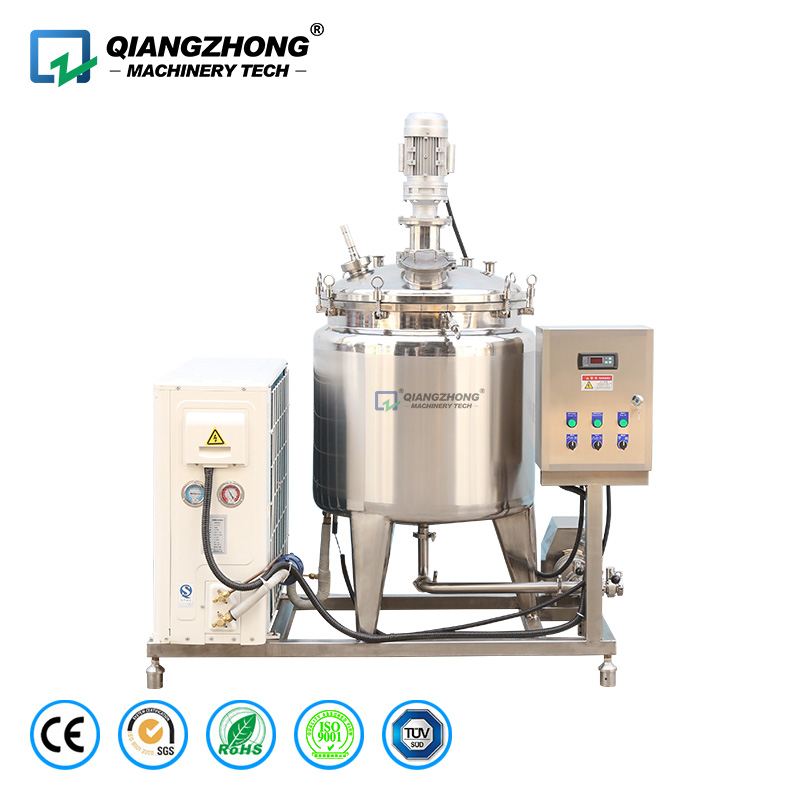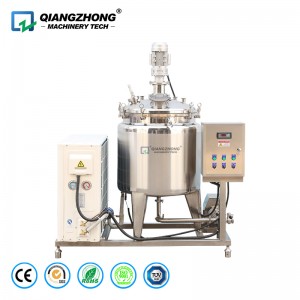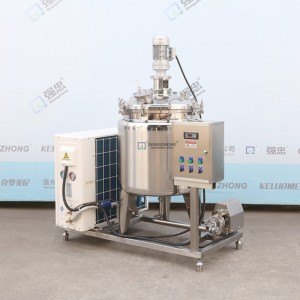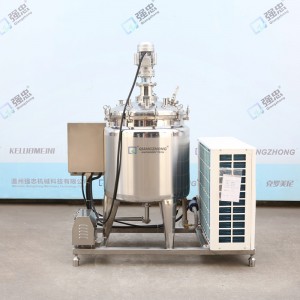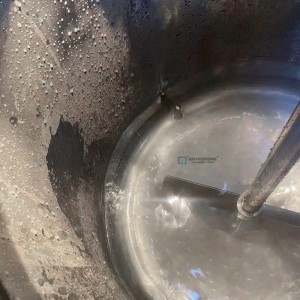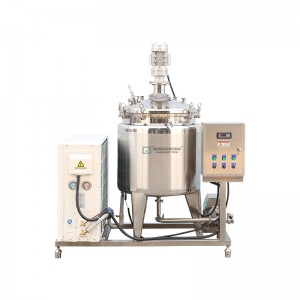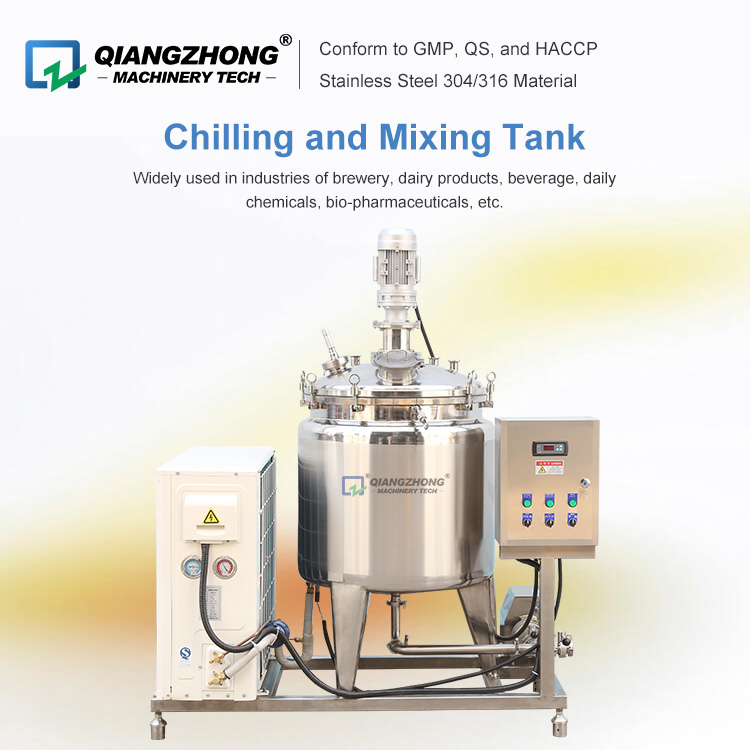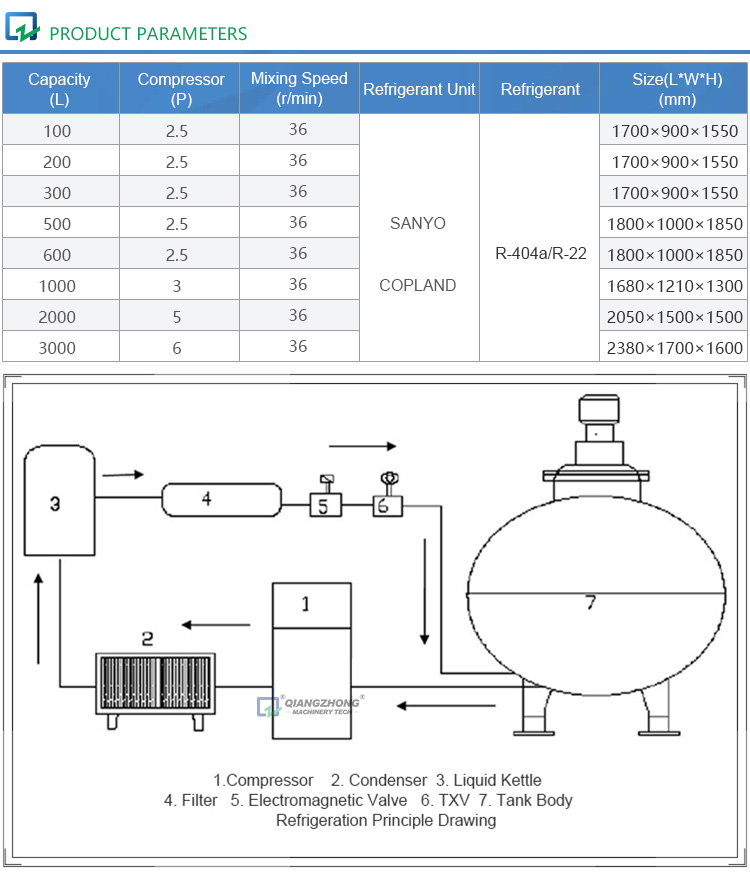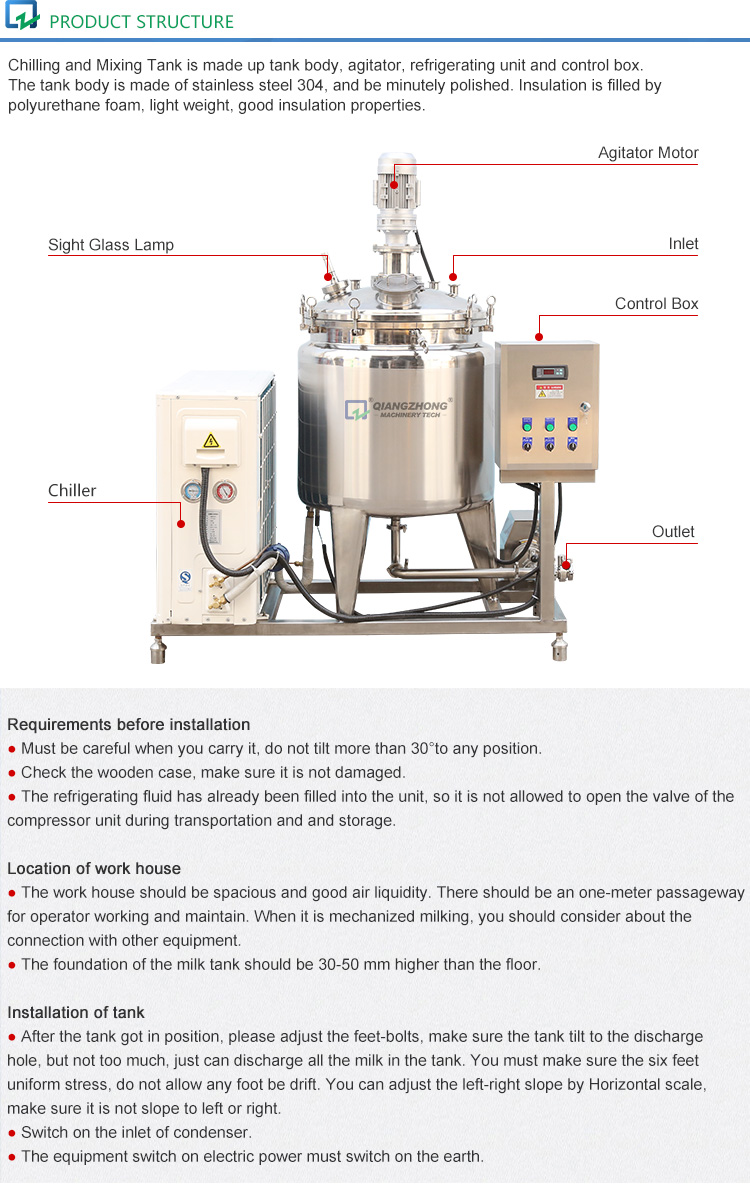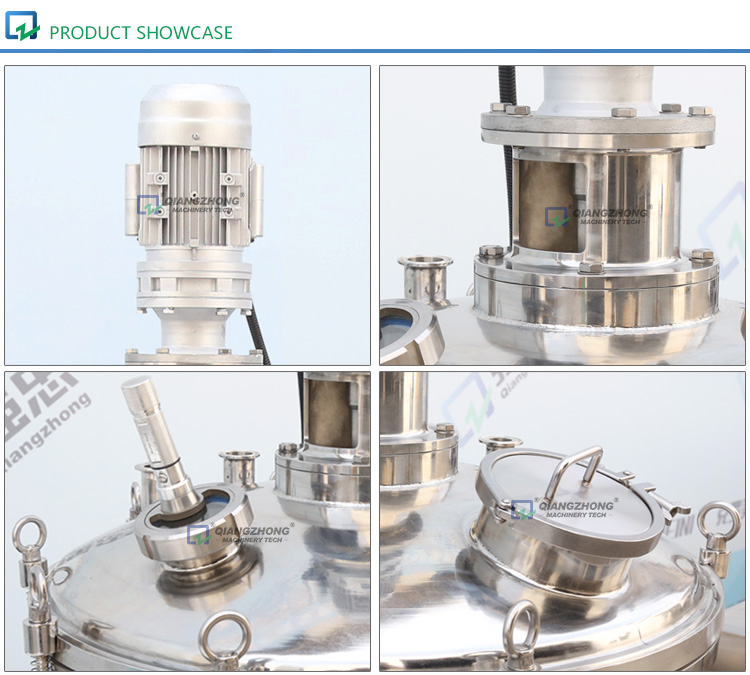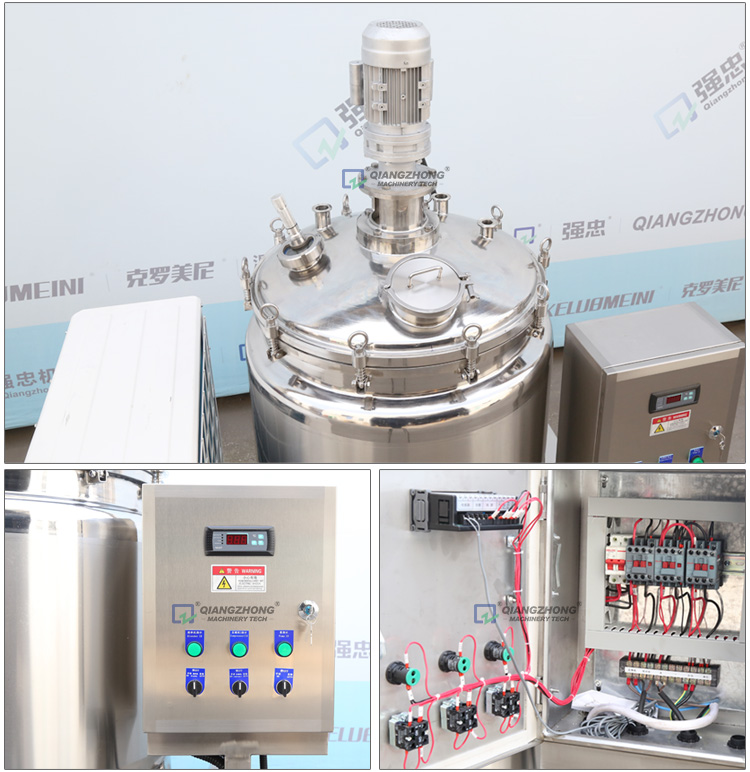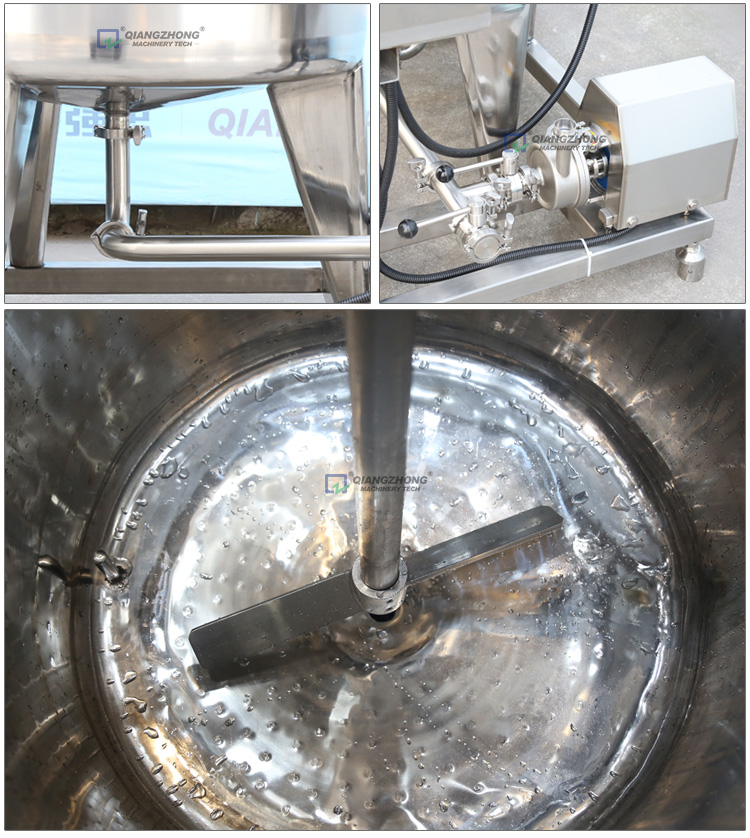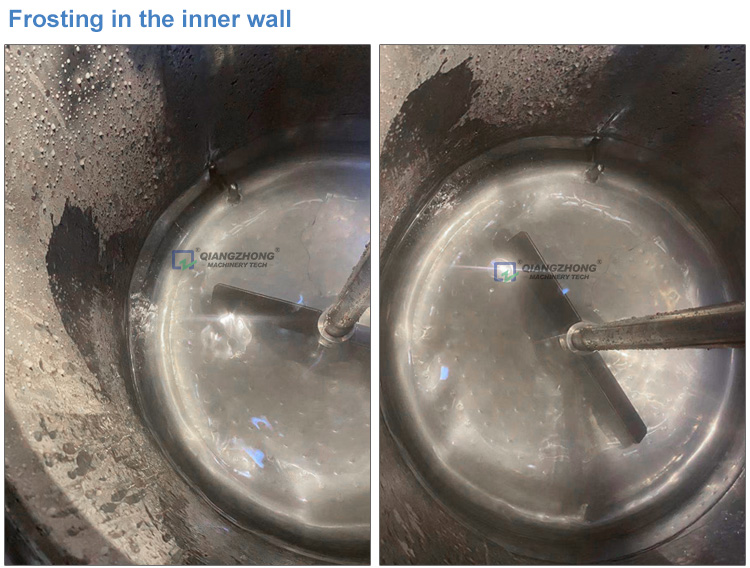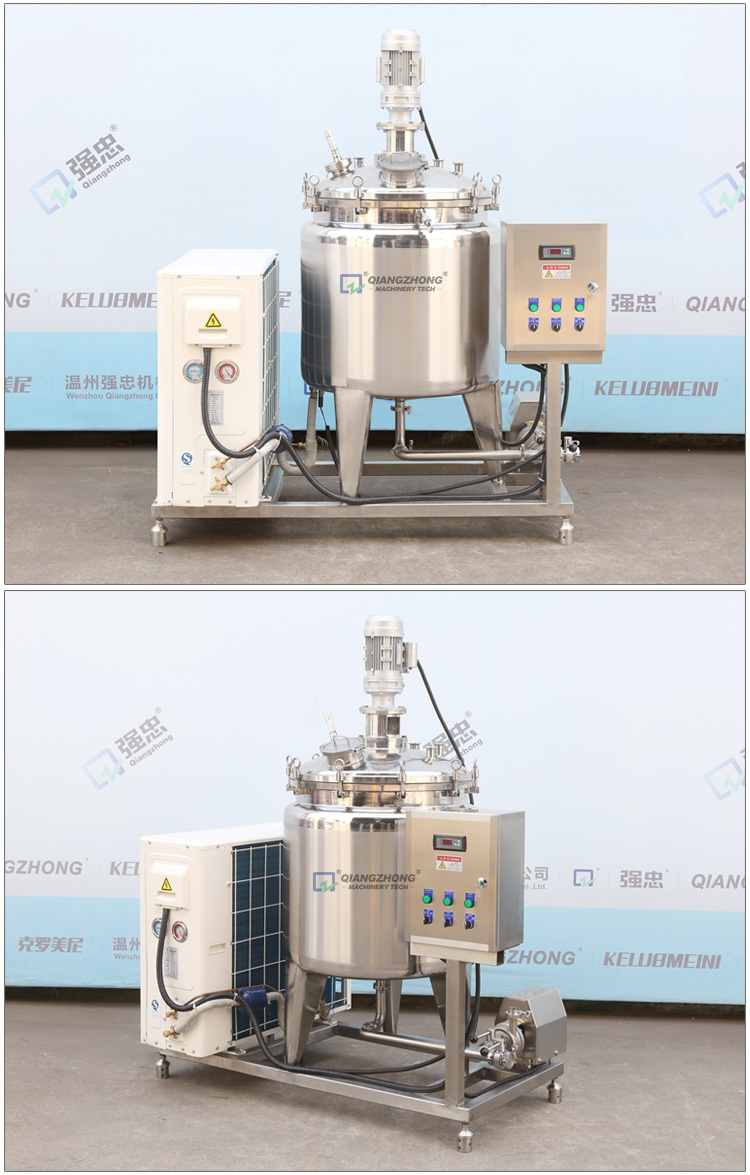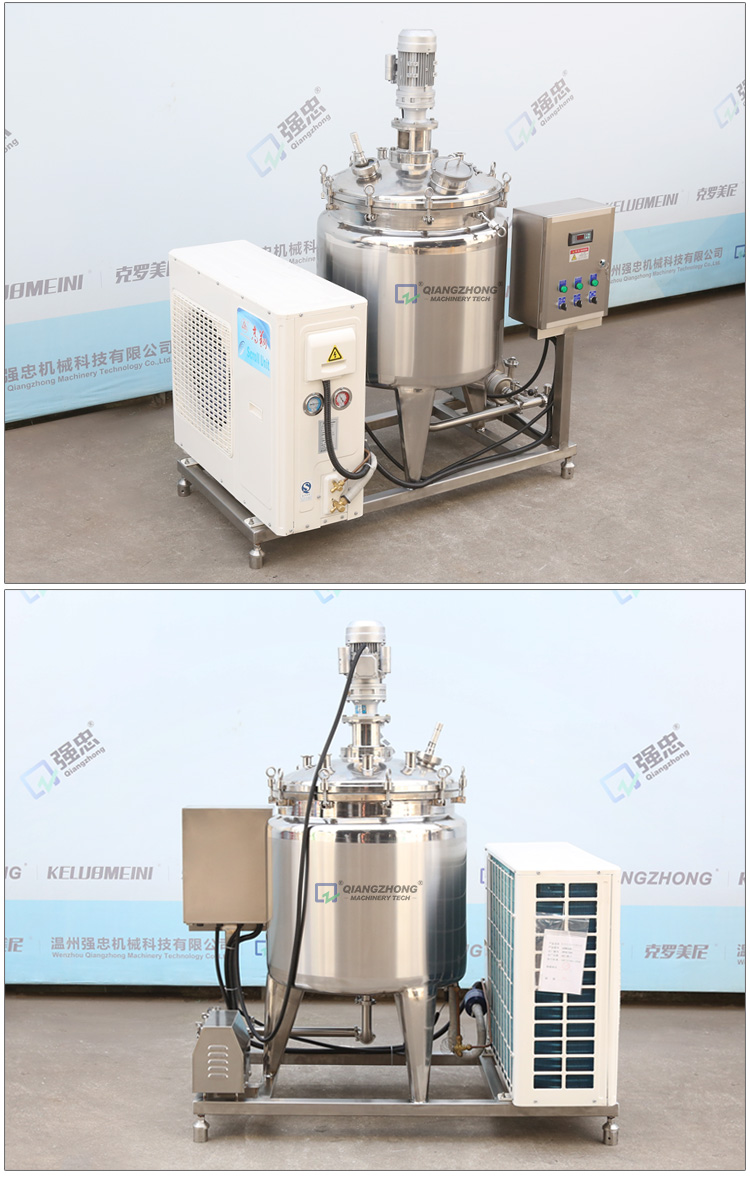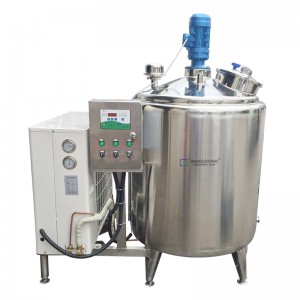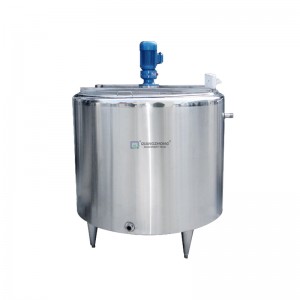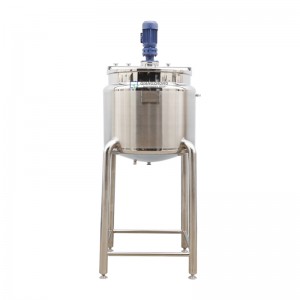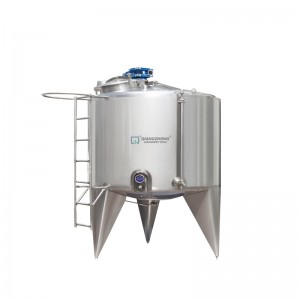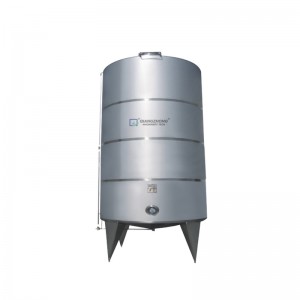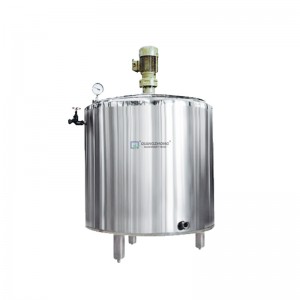Video
Equipment lntroduction
Usage and structure
Milk cooling tank is used for storage and cooling the fresh milk of pasture and farm, it also can be used forsmall milk coollection station,dairy processing plants, and food, feed,pharmaceutical factories.
Milk cooling tank is made up tank body, agitator, refrigerating unit and control box .
The tank body is made by stainless steel 304, and be minutely polished. lnsulation is filled by polyurethane foam.
Main technical parameters
| Capacity
300L 500L 1000L 2000L 3000L 4000L 5000L 6000L 7000L |
Refrigerant Unit
SANYO COPLAND |
Compressor
2.5P 2.5P 3P 5P 6P 8P 10P 12P 12P |
Mixing speed
36RPM |
Refrigerant
R-404a/R-22 |
Size(LWH)
1700*900*1550mm 1800*1000*1850mm 1680*1210*1300mm 2050*1500*1500mm 2380*1700*1600mm 2630*1800*1700mm 2980*1900*1800mm 3080*2100*1950mm 3300*2100*1950mm |
Installation and debugging
1. Requirements before installation
(1) Must be carefully when you carry it, do not tilt more than 30°to any position.
(2) Check the wooden case to make sure it is not damaged.
(3) The refrigerating fluid has already been filled into the unit, so it is not allowed to open the valve of the compressor unit.
2. Location of work house
(1) The work house should be spacious and Good air liquidity. There should be a one meter passageway for operator working and maintain.When it is mechanized milking, you should consider adout the connection with other equipments.
(2) The foundation of the milk tank should be 30-50 mm higher than the floor.
3. Installation of milk tank
(1) After the milk tank got in position, please adjust the feet-bolts,make sure the tank tilt to the discharge hole, but not too much, just can discharge all the milk in the tank. You must make sure the six feet uniform stres , do not allowed any foot be drift. You can adjust the left-right slope by Horizontal scale, make sure it is not slope to left or right.
(2) Switch on the inlet of condenser.
(3) The equipments switch on electric power must switch on the earth.
Use and maintenance
Check before opening up:
1. Before open up the compressor, if it is water condenser, should open up the water valve firstly.
2. Please check all valves in the system make sure it is suitable for the working .
3. Check the are all the electrical equipments work well, especially in winter, you can open up it when the temperature of compressor bottom is 6 ℃ higher than the environment temperature .
4. Check the balance of the higher and lower pressure gauge , if it is too low, please check is it lack refrigerant.
5. Check all the linemake sure it goes well.
Attention after normal working:
1. After opening up the refrigeration compressor , the cylinder should has no abnormal sound,you can differentiate it by screw driver.
2. Compressor housing should not have frosting phenomenon, heat load smaller working conditions, the suction tube frost generally inhalation taste normal.
Scope of work and restrictions:
1. To protect the safety and durability of hermetically sealed compressors, the following operating ranges and limitations must be observed:
2. The working voltage must be the nameplate rated voltage.
3. Compressor end, phase imbalance value must be about 3%.
Motor coil temperature shall not exceed 70 ℃, the maximum shall not exceed 100 ℃.
Motor coil temperature test method: T = R2 / R1 (234.5 + T0) -234.5
(R2 is the coil resistance when the ambient temperature is T0)
(R1 is the coil resistance one hour after turning on)
(T is coil temperature)
4. Do not use the compressor as a refrigeration system vacuum.
5. Compressor shall not be used in the production of liquid phenomenon. In this case should be immediately shut down.
6. Lubricating oil can be used 18 # oil (water content <30ppm).
7. Milk tank milk below the mixing blade, you can not start the compressor.
8. After starting the compressor at least 5 minutes of continuous operation, the shortest interval after not less than 2 minutes.
9. The number of switches per hour shall not exceed 6 times.
10. The refrigerant in the water content of not more than 10ppm (factory has added refrigerant)
11. High and low voltage controller high voltage power off value 1.85Mpa, low voltage power off value 0.2Mpa.
12. For the first time or long-term deactivation, the compressor heater should be preheated for 8 hours before starting the compressor. Electric heating and reverse use of the compressor, the compressor is on, noon electric heater stops, electric heater is on, the compressor stops.
13. Temperature controller set value 4 ℃ and 7 ℃, when the milk tank temperature down to about 4 ℃ automatically shut down, do not reduce the milk temperature to 3 ℃ to allow the unit to continue to work. In this case, stop immediately and check the temperature controller. When the milk temperature in the tank rises to about 7 ℃, the unit will start automatically.
14. Milk tank should be washed immediately after washing.
15. After the milk tank is deactivated, keep the tank dry and clean, and keep the liquid in the tank for a long time.
16. Do not use wire brush brush milk tank.
17. Check whether the lack of blender, oil seal is intact.
18. Winter freezer unit to stop using, should be drained condenser water drain, in order to avoid frost cracking.
Common failures and troubleshooting
Because of ordinary wear and unit shaking after long time use, the tank will become some inevitable failures.
Now the following is some normal failures and troubleshooting
| Failures | Reason | Shooting methods |
| Suction pressure is too low |
1. Refrigerator load is too low
2. TXV(thermal expansion valve)is not open enough 3. The system has no enough refrigerattng fluid 4. TXV or fluid feed tube blockage or ice jam 5.The electromagnetic valve has blockage no enough opening |
1. Increase the load
2. Adjust the opening 3. Add more refrigerating fluid 4. Clear up the blockage 5.Remove the electromagnetic valve clean or exchange it
|
| Suction pressure is too high |
Refrigerating fluid is too much
TXV opened too much Heating load is big |
Take out or recycle the refrigerating fluid
Adjust the TXV Decrease the heating load |
| Discharge pressure is too high |
1. Air enters the system
2. The cooling water cooling device is not enough 3. The system refrigerant charge too much 4. Cold suspect device furring result in reduced heat transfer |
1. Check excluded
2. Forced water cycle 3. Release or recycle from the system 4. Wash out dirt condenser |
| Discharge pressure is too low | 1. 冷却水量(风量)过多
1. Cooling water (air volume) too much |
1. Reduce the amount of water (air volume) |
| Discharge temperature is too high | 1. Exhaust temperature is too high
2.Inspiratory pressure is too low, the compression ratio increases 3. Inspiratory temperature is too large, evaporator less fluid |
1. After inspection excluded
2. Adjust the thermal expansion valve 3. Check excluded |
|
Suction temperature is too high |
1. Less refrigerant in the system
2. Thermal expansion valve opening degree is too small, less evaporator fluid supply |
1. Check after the increase
2. Adjust the thermal expansion valve |
| Low-voltage relay early action |
1. Low-voltage renewal improper adjustment
2. Suction line valve above gas-liquid separator is not open 3. Solenoid valve damage can not open the solenoid valve power supply problem |
1. Re-adjustment
2. Open the valve 3. Repair and adjustment |
| High-voltage relay early action | 1. Low-voltage renewal improper adjustment | 1. Re-adjustment |
| Compressor shell too hot |
1. voltage is too low
2. Overload 3. The compressor short of oil 4. Motor fault |
1. Check the power supply
2. Check excluded 3. Check to refuel 4. Poor insulation inspection and repair |
| Temperature relay early action |
1. No voltage
2. Milk tank temperature has to 3. Thermal power is not reset |
1. Check the line
2. Check the temperature controller is normal 3. Check the adjustment continued electrical appliances |
| Refrigerating capacity is too low |
1. Refrigeration system lack of fluoride
2. Thermal expansion valve opening degree is too small, less evaporator fluid supply 3. Condensing temperature is too high |
1. Check add fluoride
2. Adjust 3. Check excluded |
| The compressor shakes too much
when working |
1. Stop oil heater is not open or failure, causing the lack of fluorine inside the compressor, the oil solubility increased
2.Compressor failure |
1. Check the oil heater to heat the compressor oil
2 Check exclusion |
| Mixing motor gets hot |
1. Improper installation or agitator level uncorrected
2.Stirring wear sleeve, long interval |
1. Re-adjust the installation
2. Adjust the mixing sleeve |
| Temperature is not right |
1. Temperature controller failure
2. Low-voltage renewal improper adjustment 3. Thermal breaker failure |
1. Measuring temperature probe is normal
2. Readjust 3. Check the adjustment continued electrical appliances |
Refrigeration Principle Drawing
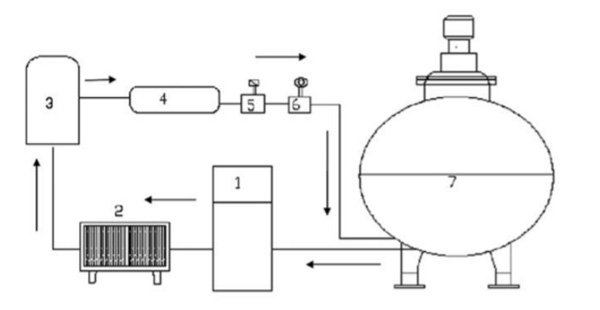 |
1. Compressor 2. Condenser 3. Liquid Kettle 4. Filter 5. Electromagnetic Valve 6. TXV 7. Tank Body |

